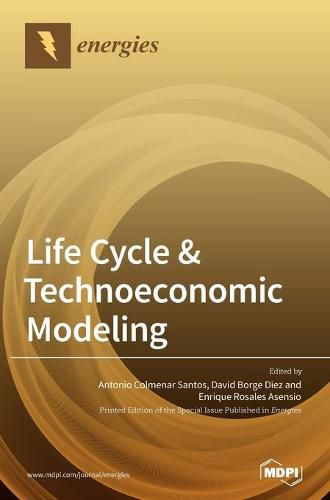Readings Newsletter
Become a Readings Member to make your shopping experience even easier.
Sign in or sign up for free!
You’re not far away from qualifying for FREE standard shipping within Australia
You’ve qualified for FREE standard shipping within Australia
The cart is loading…






This title is printed to order. This book may have been self-published. If so, we cannot guarantee the quality of the content. In the main most books will have gone through the editing process however some may not. We therefore suggest that you be aware of this before ordering this book. If in doubt check either the author or publisher’s details as we are unable to accept any returns unless they are faulty. Please contact us if you have any questions.
This book aims to perform an impartial analysis to evaluate the implications of the environmental costs and impacts of a wide range of technologies and energy strategies. This information is intended to be used to support decision-making by groups, including researchers, industry, regulators, and policy-makers. Life cycle assessment (LCA) and technoeconomic analysis can be applied to a wide variety of technologies and energy strategies, both established and emerging. LCA is a method used to evaluate the possible environmental impacts of a product, material, process, or activity. It assesses the environmental impact throughout the life cycle of a system, from the acquisition of materials to the manufacture, use, and final disposal of a product. Technoeconomic analysis refers to cost evaluations, including production cost and life cycle cost. Often, in order to carry out technoeconomic analysis, researchers are required to obtain data on the performance of new technologies that operate on a very small scale in order to subsequently design configurations on a commercial scale and estimate the costs of such expansions. The results of the developed models help identify possible market applications and provide an estimate of long-term impacts. These methods, together with other forms of decision analysis, are very useful in the development and improvement of energy objectives, since they will serve to compare different decisions, evaluating their political and economic feasibility and providing guidance on potential financial and technological risks.
$9.00 standard shipping within Australia
FREE standard shipping within Australia for orders over $100.00
Express & International shipping calculated at checkout
Stock availability can be subject to change without notice. We recommend calling the shop or contacting our online team to check availability of low stock items. Please see our Shopping Online page for more details.
This title is printed to order. This book may have been self-published. If so, we cannot guarantee the quality of the content. In the main most books will have gone through the editing process however some may not. We therefore suggest that you be aware of this before ordering this book. If in doubt check either the author or publisher’s details as we are unable to accept any returns unless they are faulty. Please contact us if you have any questions.
This book aims to perform an impartial analysis to evaluate the implications of the environmental costs and impacts of a wide range of technologies and energy strategies. This information is intended to be used to support decision-making by groups, including researchers, industry, regulators, and policy-makers. Life cycle assessment (LCA) and technoeconomic analysis can be applied to a wide variety of technologies and energy strategies, both established and emerging. LCA is a method used to evaluate the possible environmental impacts of a product, material, process, or activity. It assesses the environmental impact throughout the life cycle of a system, from the acquisition of materials to the manufacture, use, and final disposal of a product. Technoeconomic analysis refers to cost evaluations, including production cost and life cycle cost. Often, in order to carry out technoeconomic analysis, researchers are required to obtain data on the performance of new technologies that operate on a very small scale in order to subsequently design configurations on a commercial scale and estimate the costs of such expansions. The results of the developed models help identify possible market applications and provide an estimate of long-term impacts. These methods, together with other forms of decision analysis, are very useful in the development and improvement of energy objectives, since they will serve to compare different decisions, evaluating their political and economic feasibility and providing guidance on potential financial and technological risks.